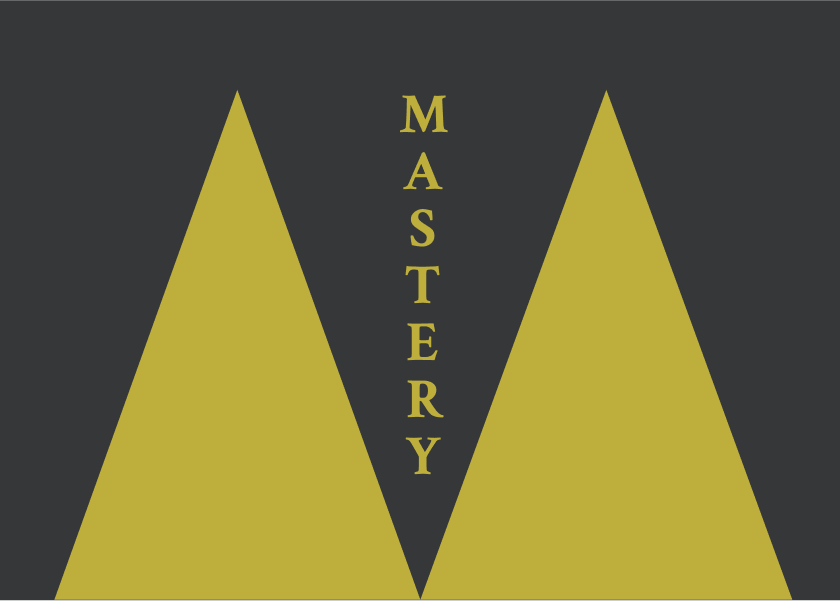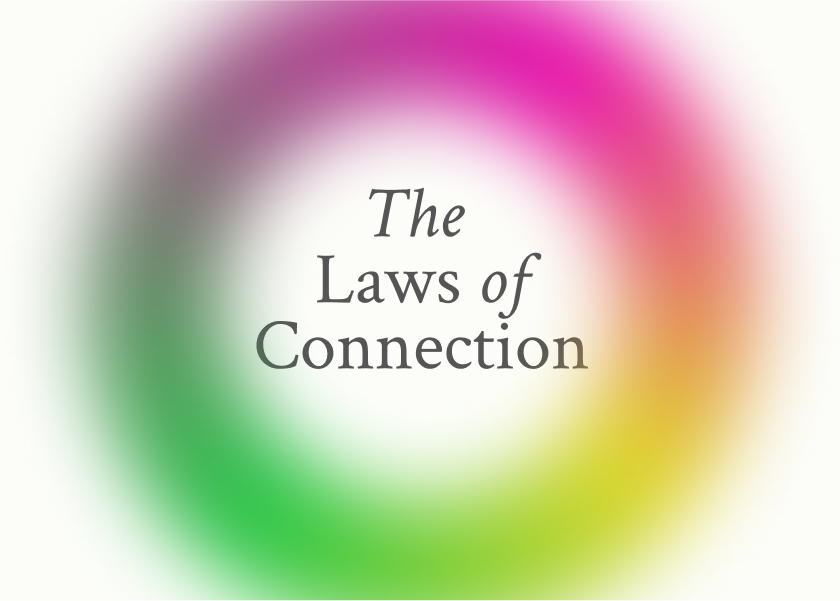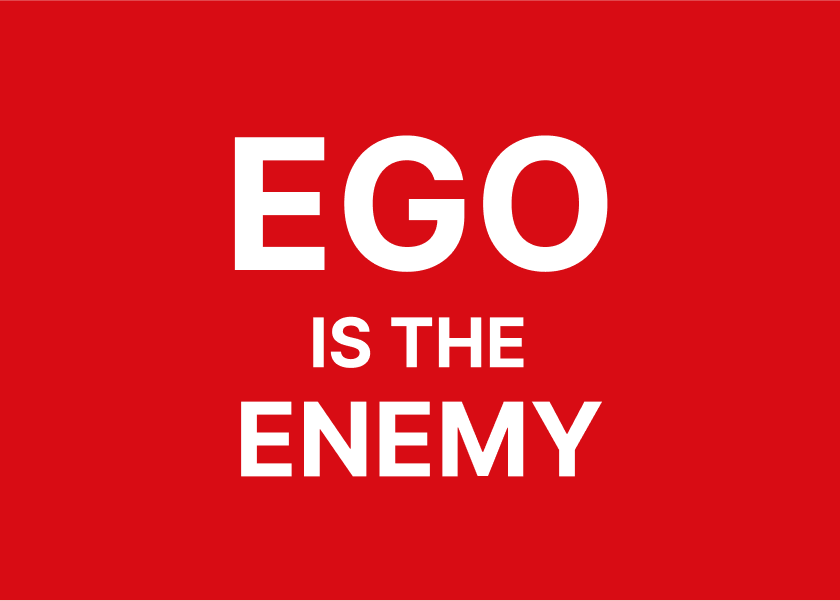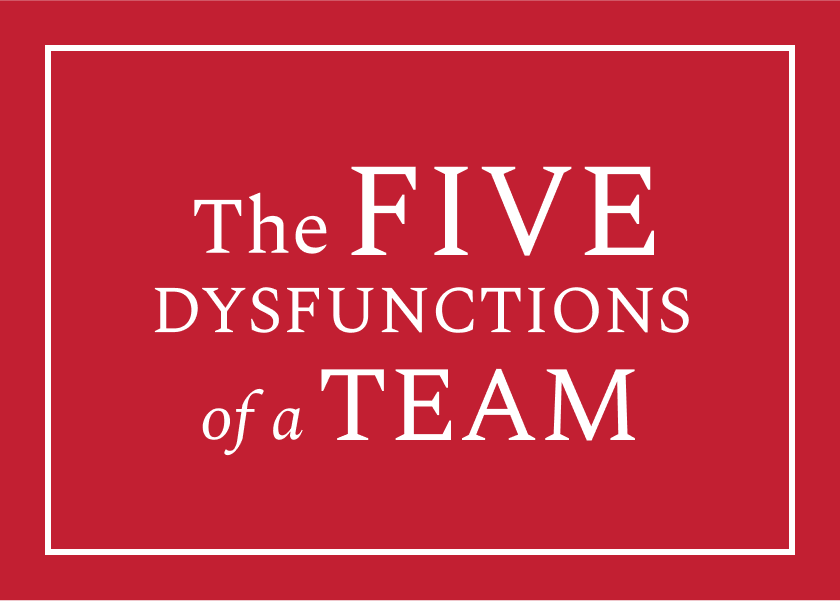Mastery by Robert Greene - Summary
Discover the path to mastery by finding your calling, navigating the apprenticeship, and fusing intuition with reason. Learn from history's greats and unleash the latent power within.

The following is a summary and review of the book Mastery by Robert Greene.
Unlock Your Inner Genius
Are you feeling adrift, uncertain of your true purpose or how to achieve genuine excellence in your chosen field? Do you look at the lives of accomplished individuals with a mixture of awe and the nagging feeling that such heights are unattainable for you? Robert Greene's insightful and meticulously researched book, Mastery, offers a powerful antidote to these feelings of uncertainty. By dissecting the lives of historical and contemporary masters, Greene unearths the universal principles that underpin the journey to profound skill and creative brilliance. This article will guide you through the core concepts of this popular and transformative work, providing a roadmap for your own ascent towards mastery.
Table of Contents
- About the Author
- Who Should Read This Book?
- Key Insights and Themes
- Detailed Summary
- Review
- Actionable Takeaways
- FAQs
- Conclusion
About the Author
Robert Greene is a renowned American author best known for his books on strategy, power, and seduction. His works, including the international bestsellers The 48 Laws of Power (summary), The Art of Seduction, and The 33 Strategies of War, are celebrated for their synthesis of historical anecdotes and psychological insights. In Mastery, published in 2012, Greene continues his exploration of human potential by examining the lives of individuals who have reached the pinnacle of their respective fields. His meticulous research, drawing from biographies, historical accounts, and studies in neuroscience and cognitive science, lends significant credibility to his analysis. Greene’s engaging writing style and ability to distill complex ideas into practical principles have made him a popular and influential author for readers seeking to understand and improve themselves.
Who Should Read This Book?
Mastery is a compelling read for anyone who feels a deep yearning for purpose and a desire to excel in their chosen path. This includes:
- Young adults grappling with career choices and seeking guidance on how to embark on a fulfilling professional life. The book's emphasis on discovering one's "Life's Task" offers invaluable direction.
- Individuals at any career stage who feel stuck, unfulfilled, or believe they have plateaued in their skills. The principles of the Ideal Apprenticeship and the Mentor Dynamic can provide fresh perspectives and renewed motivation.
- Aspiring entrepreneurs and creatives seeking to unlock their innovative potential and make a significant impact in their fields. The sections on social intelligence and the Creative-Active phase offer crucial insights.
- Lifelong learners who are fascinated by the process of skill acquisition, the workings of the mind, and the biographies of exceptional individuals.
- Anyone interested in personal growth and self-improvement, seeking to understand the psychological and practical steps involved in achieving a high level of proficiency in any endeavour.
For example, a recent graduate unsure of their career path will find guidance in the strategies for discovering their calling. Someone feeling stagnant in their current job can learn how to re-engage through the principles of deep observation and skills acquisition. An entrepreneur facing social or political hurdles within their industry will gain valuable insights from the section on social intelligence.
Key Insights and Themes
Here are some of the key takeaways and main ideas explored in Mastery:
- Discover Your Calling (The Life’s Task): Identifying your innate inclinations and the work you are meant to accomplish is the crucial first step towards mastery.
- The Ideal Apprenticeship: This extended period of deep observation, skill acquisition, and experimentation is essential for transforming your mind and character. It prioritises learning over immediate financial gain.
- The Mentor Dynamic: Finding and learning from experienced mentors is the most efficient way to absorb valuable knowledge and accelerate your progress. This involves humility and eventually surpassing your mentor.
- Social Intelligence: Understanding and navigating the social environment is vital for sustained success and allows you to focus your energy on learning. This involves seeing people realistically and avoiding naivety.
- Awakening the Dimensional Mind (The Creative-Active Phase): As you master foundational skills, your mind becomes more active, seeking to expand knowledge, make new connections, and ultimately break and reshape the rules of your field. This involves developing intuitive intelligence.
- The Fusion of Intuition and Reason: True mastery involves a high level of intuition developed through deep immersion and practice, working in concert with rational thought.
- The Importance of Time and Focus: Mastery is not about innate talent but rather the result of years of intense focus and dedicated practice.
Detailed Summary
Robert Greene structures Mastery into six distinct chapters, each exploring a crucial phase in the journey.
1. Discover Your Calling: The Life’s Task
This initial phase emphasizes the importance of introspection and reconnecting with your innate inclinations. Greene argues that everyone possesses an inner force guiding them towards their "Life's Task" – what they are meant to accomplish. The key is to learn who you truly are and to identify the activities that genuinely fascinate and energize you.
- Listening to Your Primal Inclinations: Greene highlights the significance of childhood fascinations and urges. Examples like Charles Darwin's early passion for natural history illustrate the power of following these primal urges.
- Avoiding False Paths: The allure of money or immediate prosperity can lead you astray from your true calling, resulting in eventual emptiness and frustration. The "rebellion strategy," exemplified by Mozart's early defiance of restrictive norms, showcases the importance of staying true to your inner voice.
- Letting Go of the Past: Past failures or societal expectations can hinder your progress. The "adaptation strategy," illustrated by boxing trainer Freddie Roach, emphasises the need to learn from the past without being defined by it.
- Finding Your Way Back: Sometimes, you may deviate significantly from your path. The "life-or-death strategy" of Buckminster Fuller demonstrates the power of a crisis to force a return to one's core purpose.
- The Reversal: Temple Grandin's story illustrates how even seemingly insurmountable deficiencies can be overcome by focusing on small strengths and gradually expanding.
2. Submit to Reality: The Ideal Apprenticeship
Following formal education, the apprenticeship phase is critical for gaining practical skills and transforming your mind. The goal is not immediate success or financial reward, but self-transformation through deep immersion in your chosen field.
- The Goal of Apprenticeship: This phase is about grounding yourself in the objective reality of your field, mastering necessary skills, and developing discipline.
- Step One: Deep Observation (The Passive Mode): In the initial stages, it's crucial to mute your own ego, observe the rules, power dynamics, and nuances of your environment. The story of Charles Darwin on the HMS Beagle exemplifies this passive observation.
- Step Two: Skills Acquisition (The Practice Mode): This involves diligently practicing and gaining tacit knowledge – the unspoken understanding of your craft. The apprenticeship system of the Middle Ages is cited as a model. The concept of 10,000 hours of quality practice leading to a qualitative change in the brain is introduced.
- Step Three: Experimentation (The Active Mode): Gradually, you begin to assert yourself, experiment with your skills, and overcome fears.
- Strategies for Completing the Ideal Apprenticeship: The book outlines several strategies, including valuing learning over money (Benjamin Franklin, Albert Einstein, Martha Graham, Freddie Roach), continually expanding your horizons (Zora Neale Hurston), and apprenticing yourself in failure (Henry Ford).
3. Absorb the Master’s Power: The Mentor Dynamic
To accelerate learning and avoid wasting valuable years, finding the right mentor is essential. The mentor-protégé relationship is the most efficient form of knowledge transfer, allowing you to internalize a master's way of thinking and working.
- The Importance of Humility: Recognising your need for guidance is the first step.
- Finding and Attracting a Mentor: Choose a mentor whose skills and knowledge align with your Life's Task. Demonstrating a strong desire to learn and offering assistance can attract potential mentors. The story of Michael Faraday and his mentor Humphry Davy illustrates this dynamic.
- Deepening the Mentor Relationship: This involves active listening, asking insightful questions, and striving to see the world through your mentor's eyes.
- When to Cut the Master: Eventually, the goal is to surpass your mentor and strike out on your own.
4. See People As They Are: Social Intelligence
Navigating the social environment effectively is crucial for focusing your energy on mastery. Our naive tendency to project our desires onto others often leads to conflict and wasted effort. Social intelligence is the ability to see people realistically, understand their motivations, and discern manipulative tendencies.
- Thinking Inside: Benjamin Franklin's early use of a pseudonym to gain recognition for his writing highlights the importance of understanding social dynamics.
- The Seven Deadly Realities: Greene identifies common social pitfalls: Envy, Conformism, Rigidity, Self-obsessiveness, Laziness, Flightiness, and Passive Aggression. Understanding these realities helps you navigate social interactions more effectively.
- Strategies for Acquiring Social Intelligence: These include speaking through your work (Ignaz Semmelweis, William Harvey), crafting the appropriate persona (Teresita Fernández), and seeing yourself as others see you (Temple Grandin).
5. Awaken the Dimensional Mind: The Creative-Active
As you accumulate skills, your mind naturally seeks to use this knowledge in more original ways. This phase involves expanding your knowledge to related fields, making new associations, and ultimately challenging the rules you have internalised.
- The Creative Task: True creativity involves your entire being – emotions, energy, character, and mind – and requires deep emotional commitment. Marcel Proust's journey to finding the subject of his masterpiece illustrates this.
- Creative Strategies: The book explores various creative strategies employed by masters, such as widening your vision (Freddie Roach), submitting to the other (Daniel Everett), and synthesizing all forms of knowledge (Johann Wolfgang von Goethe). The concept of "Evolutionary Hijack," exemplified by Paul Graham's entrepreneurial journey, shows how unexpected opportunities can lead to innovation.
- The Roots of Masterly Intuition: High-level intuition develops through deep engagement with complexity and a tolerance for chaos. The "fingertip feel" described by masters across various fields highlights this intuitive grasp.
6. Mastery
The final stage is characterised by a fusion of intuitive and rational intelligence, a deep connection to your field, and the ability to see the whole picture. Masters possess a strong inner guidance system and are not bound by conventional paths.
- Traits of Mastery: These include a profound love for their subject, a heightened ability to see more deeply, and a unique way of working.
- Strategies for Attaining Mastery: These involve finding your unique path, paying attention to details, and cultivating a global perspective.
- The Reversal: The denial of the existence or importance of mastery leads to a reliance on the "false self" and feelings of powerlessness. True mastery comes from following your natural inclinations.
Review
Mastery is an ambitious and deeply rewarding book. Greene's extensive research and compelling biographical sketches make the principles of mastery both fascinating and relatable. The book's strength lies in its ability to demystify the process of achieving excellence, breaking it down into understandable phases and actionable strategies. The diverse examples, ranging from historical figures like Leonardo da Vinci and Mozart to contemporary masters like Temple Grandin and Paul Graham, provide a rich tapestry of insights.
However, the book's length and density can be challenging for some readers. The sheer volume of information and the detailed historical accounts require focused attention. Additionally, while the principles are universal, the application may require significant personal reflection and adaptation to individual circumstances. Some readers might also find Greene's pragmatic and sometimes assertive tone to be less inspiring and more prescriptive.
Overall, Mastery is a valuable resource for anyone serious about personal and professional growth. Its detailed framework and insightful analysis offer a profound understanding of the journey towards achieving true mastery in any field.
Actionable Takeaways
Here’s how to apply these lessons in real life:
- Engage in deep introspection to identify your core interests and what truly excites you. Consider your childhood fascinations as potential clues to your Life's Task.
- Seek out apprenticeship opportunities in your chosen field, prioritising learning and skill development over immediate financial rewards. Be prepared to be a diligent observer and dedicated practitioner.
- Identify potential mentors who possess the skills and knowledge you wish to acquire. Be proactive in seeking their guidance and demonstrate a strong willingness to learn.
- Cultivate your social intelligence by consciously observing people's behaviours and motivations. Strive to see situations from others' perspectives and avoid projecting your own needs onto them.
- Embrace experimentation and push beyond your comfort zone as you develop your skills. Don't be afraid of failure, as it is a crucial part of the learning process.
- Continuously expand your knowledge by exploring related fields and seeking new perspectives. Look for connections between different ideas and challenge conventional thinking.
- Develop a deep and abiding passion for your chosen field. This emotional commitment will fuel your dedication and drive you through challenges.
- Be patient and persistent. Mastery is a long-term journey that requires sustained focus and effort over many years.
FAQs
- What is Mastery about? Mastery explores the lives of historical and contemporary masters to identify the universal principles and stages involved in achieving a high level of skill and creative brilliance in any field. It outlines a path from discovering your calling to attaining intuitive understanding and mastery.
- Is Mastery worth reading? Yes, for individuals who are serious about personal and professional growth and are willing to invest the time in understanding its comprehensive framework. The book offers valuable insights and practical guidance for anyone seeking to excel in their chosen path.
- Does Mastery claim that talent is irrelevant? No. While Greene acknowledges that some individuals may have natural inclinations or aptitudes, he argues that mastery is primarily a function of time, intense focus, and dedicated practice, rather than innate genius alone.
- Is Mastery just a collection of biographies? No. While the book draws heavily on biographical examples, these stories serve to illustrate the underlying principles and strategies for achieving mastery. Greene synthesises these examples with insights from psychology and neuroscience to create a coherent framework.
- Is Mastery a self-help book? While it offers practical advice and guidance for personal development, Mastery goes beyond typical self-help by providing a deep and nuanced exploration of the process of skill acquisition and creative development, grounded in extensive research and historical analysis.
Conclusion
Robert Greene's Mastery is more than just a book; it is a comprehensive guide to unlocking your potential and embarking on a transformative journey. By understanding the principles outlined within its pages – from discovering your Life's Task to cultivating intuitive mastery – you can gain the wisdom and motivation to pursue excellence in your own life. The path to mastery is not easy, requiring dedication, perseverance, and a willingness to embrace challenges. However, as Greene eloquently demonstrates through the lives of countless inspiring figures, the rewards of reaching your full potential are immeasurable. Take the first step on your own journey today and begin to cultivate the mastery that lies within you.
As an Amazon Associate, ShelfHelp may earn money from qualifying purchases. Needless to say, ShelfHelp only includes affiliate links to books we recommend and think are worth your time reading.




